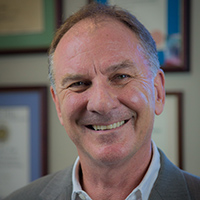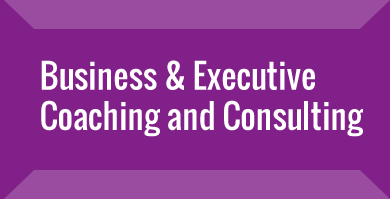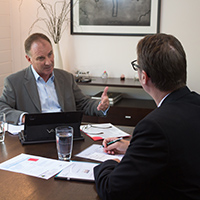Business Tips
All of Our Decisions are Emotional
- Details
- Parent Category: Business Tips
- Category: Self-Motivation & Awareness
It’s a valuable skill, colouring how we interpret events and handle their emotional content. In the adult world, this kind of re-appraisal is known as “reframing.”
Does a casual remark from a friend or colleague get catalogued as a criticism and obsessed over? Or is it reconsidered and dismissed as unintentional?
Depending on our personalities, and how we’re raised, the ability to reframe may or may not come easily. Yet, the purpose of a social-emotional learning isn’t to ignore the emotion but to channel it: to surf the waves rather than to be dumped by them. This can be hard to do. When we feel angry, we usually act angry — even when that makes the situation worse. The nature of emotion is that it tends to run away with us.
“When a feeling is unpleasant, how are you going to handle it?” asks Stephanie Jones, a Harvard psychologist who has studied a number of social-emotional learning programs. “Do you default to an angry response, a defensive response? Or, do you go into a mode that’s more information-seeking?”
Social-emotional learning (S.E.L.) often relies on strategies from conventional personal coaching and/or counselling, like the ability to get distance on a feeling, or to ‘unpack’ the deeper emotions that may be hidden within it.
Self-awareness is what lays the groundwork for the next step: the ability to intuit how another person might be feeling about a situation based on how you would feel in a similar circumstance.
Being unaware, we unconsciously engage our default behaviour. Only when we become aware of something, are we able to make choices as to the action we wish to take. Sometimes, just being aware, allows the problem to solve us…rather than requiring us to solve the problem.
As people become more self-aware, they are usually amazed at the abilities of the conscious mind to choose, handle situations with deliberation, and behave appropriately for different occasions.
On the flip side, the unconscious mind is a powerful force driving our behaviour. Within our unconscious lie veiled assumptions and beliefs that formulate what is called default behaviour. The dictionary defines default as the “failure to perform a task or fulfil an obligation,” which means that default behaviours are reactive responses that occur when we fail to consider the appropriate response.
Becoming aware of our personal reactive tendencies is crucial if we want to make sense of our toxic behaviours, understand why we have permitted these gremlins to continue, and develop a plan for taming them.
Our attitudes are choices, some of the most important choices we will ever make.
People are not going to be able to make progress on building positive relationships until they have worked through or received help with their social and emotional issues.
Social emotional learning is based on the idea that emotional skills are crucial to successful business, sporting or academic performance. “Something we now know, from doing dozens of studies, is that emotions can either enhance or hinder your ability to learn,” Marc Brackett, a senior research scientist in psychology at Yale University, told a crowd of educators at a conference last June. “They affect our attention and our memory. If you’re very anxious about something, or agitated, how well can you focus on what’s being taught?”
The theory that kids (and adults) need to learn to manage their emotions in order to reach their potential grew out of the research of a pair of psychology professors — John Mayer, at the University of New Hampshire, and Peter Salovey, at Yale.
In the 1980s, Mayer and Salovey became curious about the ways in which emotions communicate information, and why some people seem more able to take advantage of those messages than others. While outlining the set of skills that defined this “emotional intelligence,” Salovey realised that it might be even more influential than he had originally suspected, affecting everything from problem solving to job satisfaction: “It was like, this is predictive!”
In the years since, a number of studies have supported this view.
So-called non-cognitive skills — attributes like self-restraint, persistence and self-awareness — might actually be better predictors of a person’s life trajectory than standard academic measures.
Reference: The New York Times Magazine, September 16, 2013; Daniel Goleman, Annie McKee, Richard E. Boyatzis: Primal Leadership: Realize the power of emotional intelligence in becoming an effective leader.



























